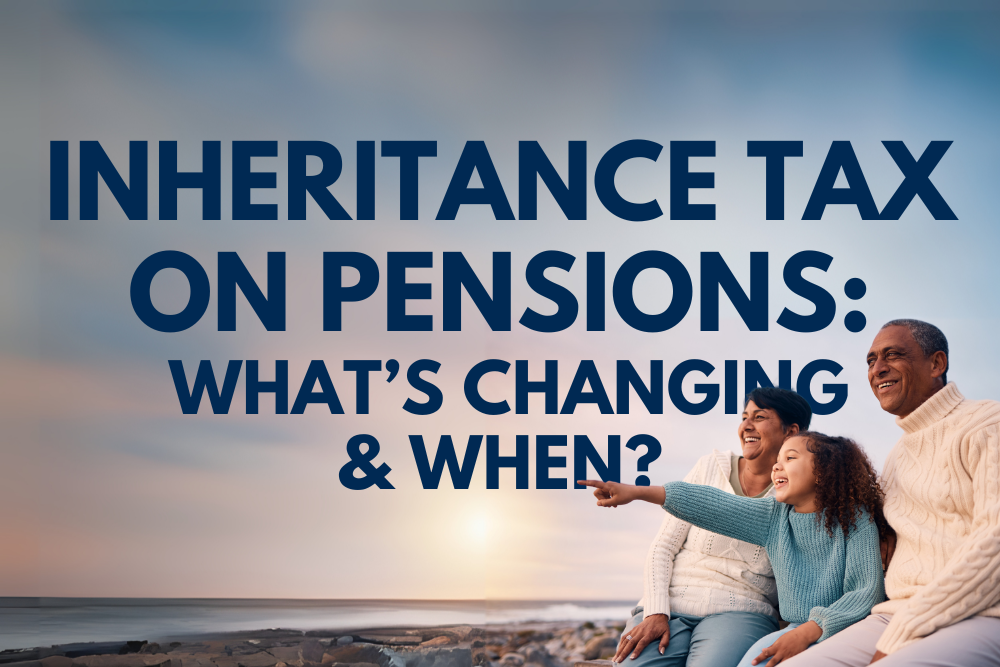
Inheritance Tax on Pensions: What’s changing and when?
As it stands, pensions are free from inheritance tax. From 6 April 2027, however, that’s set to change.
According to the Autumn Budget, the inheritance tax thresholds (the amount you can pass on when you die), before inheritance tax is due, are staying the same until 2030. That said, three years before then, pensions will no longer be exempt from inheritance tax. That means that inheritance tax may have to be paid on your pension when you die.
While things could always change (and we’ll update you with any relevant info, if that’s the case), it’s looking likely that in just under two years, your pension (if you have one) will no longer be exempt from inheritance tax.
What does this change mean for you, then? If you think you’ll be affected (more on that later), it’s a good idea to plan to revisit your estate planning to make sure you’re ready for the development if it does come into force.
What's the standard rate of inheritance tax?
Currently, the standard rate of inheritance tax is 40%. But don’t panic, even if this change to inheritance tax arises, it might not be an issue for you. The reason? Everyone has an entitlement to a nil rate band (known as the inheritance tax threshold) of £325,000 of assets, which they can leave to anyone free of inheritance tax.
Will you be affected by this change?
As most people may not yet have built up enough money in their pension to sustain the lifestyle they’d like when they retire, it could work out that they don’t have any (or much) money left in their pension pot when they pass away.
Since government figures suggest that only 10,000 or so estates will pay inheritance tax for the first time, you may find the new changes don’t affect you. Meanwhile, around 38,500 people will find they have to pay more inheritance tax.
Here’s what to do:
Like many people, your money could be tied up in pensions (and other assets) and, if that’s the case, you may wish to engage with a friendly accountancy team like ours to ensure you’re ready to tackle these inheritance tax changes head on.
By doing so, you’ll be able to work out the most tax-efficient way to spend your money during your retirement.
In light of the upcoming inheritance tax changes, Arnold Hill & Co’s Personal Tax Manager, Drupen Patel has this to say:
"With pensions no longer set to be exempt from inheritance tax from April 2027, it’s more important than ever to revisit your estate planning. While many may remain unaffected due to the existing inheritance tax thresholds, a significant number of estates will feel the impact. At Arnold Hill & Co, we’re encouraging individuals to review how their pension savings fit into their broader financial picture and to explore the most tax-efficient strategies for passing on their wealth."
Get in touch
Ready to engage with our team about these all-important inheritance tax changes? If so, get in touch via info@arnoldhill.co.uk or call us on 0207 306 9100.
If, before then, you’re keen to learn more about paying inheritance tax on pensions, the Gov.UK site has further reading to ensure you’re fully up to speed.
Author, Drupen Patel - Personal Tax Manager

